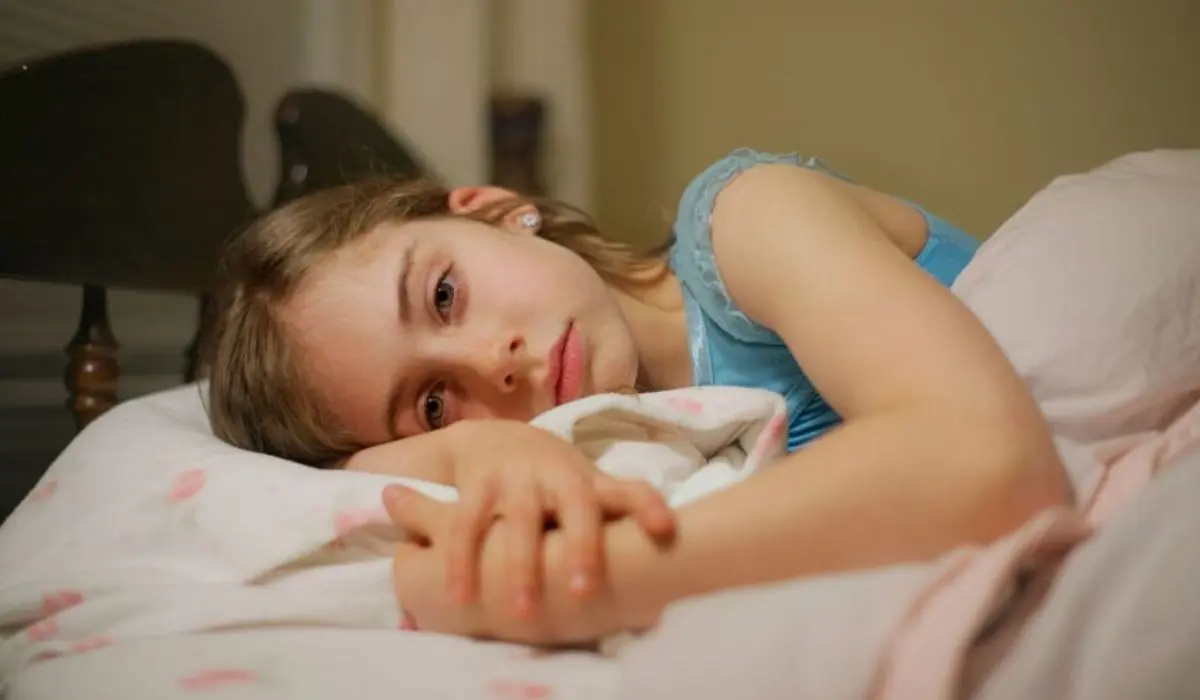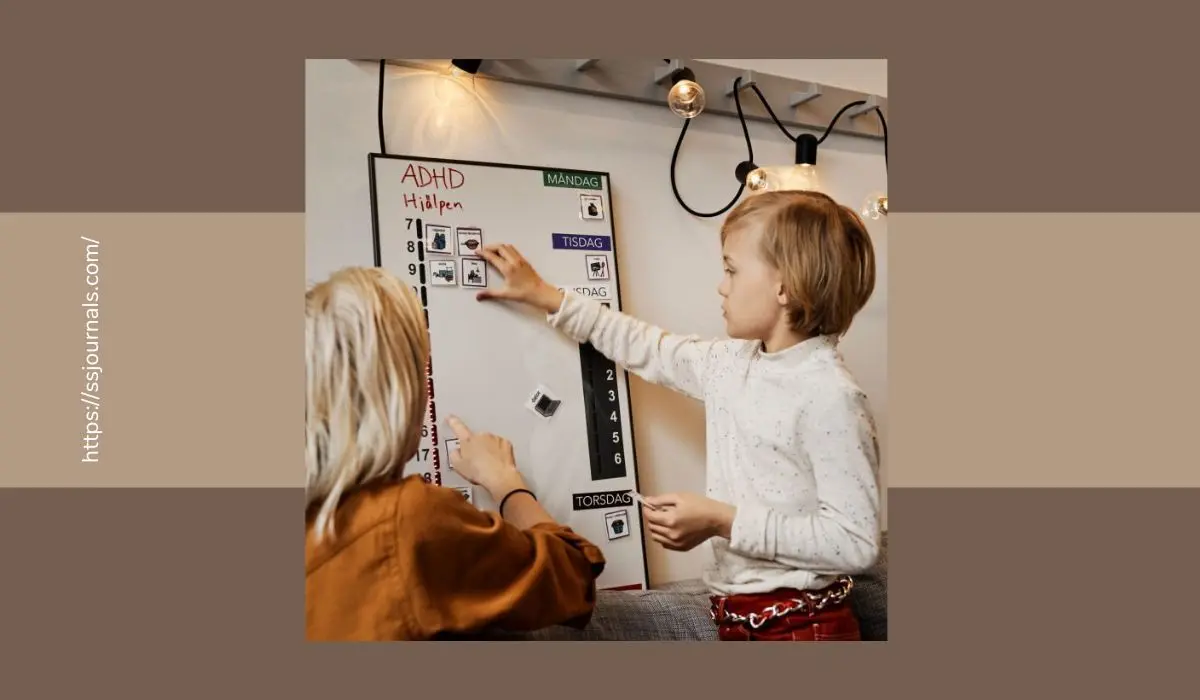To understand childhood ADHD and its impact on sleep, delve into the introduction of the topic.
Get a brief explanation of childhood ADHD and an overview of the sleep problems associated with it.
Brief Explanation Of Childhood ADHD
ADHD is a neurodevelopmental condition. It makes it hard for children to stay focused, control their behavior, and manage their energy.
Symptoms include inattention, hyperactivity, and impulsivity. These can interfere with school and socializing.
ADHD’s cause is unknown. But, certain areas of the brain may work differently in people with the condition. It can go on into adulthood, but symptoms may change.
ADHD is not laziness or bad parenting. It is a real medical condition that needs proper diagnosis and treatment.
Early intervention with therapies, such as behavior and medication, can help the person be successful.
Impact Of Sleep Problems On Childhood ADHD
To better understand the impact of sleep problems on childhood ADHD, explore the negative effects of sleep problems on ADHD symptoms and how they affect cognitive function and behavior in children.

Delve into the potential consequences and solutions for these interconnected challenges.
Negative Effects Of Sleep Problems On ADHD Symptoms
Sleep issues can really worsen ADHD in kids. Poor sleep can mess with attention, impulsivity, and hyperactivity. Plus, it can lead to irritability and moodiness.
One mind-blowing fact is that sleep problems and ADHD are strongly related.
A study published in Pediatrics showed that 70% of children with ADHD have persistent sleep problems, compared to only 30% of normally developing kids.
These sleep issues and ADHD symptoms form a vicious cycle, making it hard for kids to control their symptoms.
How Sleep Problems Affect Cognitive Function And Behavior In Children With ADHD
Sleep issues can significantly affect the cognitive abilities and behavior of children with ADHD.
These sleep disturbances can worsen existing symptoms, like lack of attention, impulsivity, and hyperactivity.
Falling and staying asleep can be difficult for children with ADHD, which affects their ability to rest and refresh.
Quality sleep is vital for the proper functioning of the brain. It helps with memory, emotions, and cognitive processes such as focus, problem-solving, and organization.
When children with ADHD don’t get enough sleep, these important functions are weakened. This can lead to difficulty concentrating, increased irritability, and a struggle with impulse control.
Furthermore, inadequate sleep can also disturb hormone balance in these children.
It changes neurotransmitters, such as dopamine and serotonin, which can trigger anxiety and make ADHD symptoms worse.
To help this issue, parents and caregivers should prioritize healthy sleep habits. Establishing a calming bedtime routine and creating a peaceful environment can aid in restful sleep.
Exercise should be part of the daily routine too, as it tires children out and helps them sleep better.
Screen time should be reduced close to bedtime as it disrupts melatonin production—a hormone that controls our sleep-wake cycle.
Parents, caregivers, and educators should be aware of the substantial impact sleep problems can have on cognitive abilities and behavior in children with ADHD.
Good sleep benefits their overall health and increases their chances of success in school, socially, and emotionally.
Healthy sleep habits should be prioritized and the necessary support provided. The future of these children relies on it.
Strategies For Managing Sleep Problems In Children With ADHD
To effectively manage sleep problems in children with ADHD, solutions lie in establishing a consistent sleep routine, creating a sleep-friendly environment, and implementing relaxation techniques while addressing anxiety.
These strategies can help improve sleep quality and alleviate the impact of ADHD on a child’s sleep patterns.
◼ Establishing A Consistent Sleep Routine
- Set a bedtime that’s always the same.
- Create a routine to help them relax.
- No screens or activities that are too stimulating near bedtime.
- Make their sleeping area comfortable, quiet, and distraction-free.
- Remain consistent with the routine.
- Medications and consulting a healthcare professional may be necessary.
- Be patient and persistent!
- Keep track of progress by writing down their sleep patterns. This can identify issues and help you adjust the routine.
◼ Creating A Sleep-Friendly Environment
Make a sleep-friendly environment by incorporating these unique details!
Remain consistent with a nightly routine to create a sense of predictability.
Explain why the activities are beneficial, like how darkening the room initiates melatonin release.
Here are some activities you can incorporate to create a sleep-friendly environment:
- Darken the room – keep dimly lit or use blackout curtains to signal to the brain that it’s time for sleep. This helps initiate the release of melatonin, a hormone that regulates sleep and wake cycles.
- Eliminate noise – use white noise machines or earplugs to mask disruptive sounds. This can help create a quieter environment, promoting better sleep quality and reducing disturbances during the night.
- Comfortable bedding – invest in supportive mattresses and pillows. This ensures proper body alignment and reduces discomfort, allowing for a more restful sleep.
- Tidy surroundings – maintain an organized and clutter-free bedroom. A clean and organized space promotes relaxation and a sense of calm, making it easier to unwind and fall asleep.
Additionally, establishing a consistent bedtime routine can greatly contribute to a calm and restful sleep.
Incorporate activities such as reading or gentle stretching to create a calming atmosphere.
Reading can help relax the mind and distract from any racing thoughts, while gentle stretching can release tension in the body.
These activities promote relaxation and signal to the body that it’s time to wind down and prepare for sleep.
This routine can be particularly beneficial for children with ADHD, as it helps improve overall well-being and promote more restful sleep.
◼ Implementing Relaxation Techniques And Addressing Anxiety
Parents and caregivers of children with ADHD can help them promote better quality sleep and overall well-being by implementing relaxation techniques and addressing their anxiety.
To do this, it’s important to:
- Create a bedtime routine – such as reading a book, listening to soothing music, or practicing deep breathing exercises.
- Teach stress management techniques – like mindfulness exercises, guided imagery, or progressive muscle relaxation.
- Create a sleep-friendly environment – by keeping the room cool, dark, and quiet. Use white noise machines or soft nightlights to create a soothing atmosphere.
Read More:- Get To Know The Risks For ADHD vs Conduct Disorder
Conclusion
It’s obvious that ADHD and sleep problems in children are linked. To understand this relationship is to find ways to manage them.
Sleep disruption worsens ADHD symptoms. It affects a child’s cognitive capabilities, emotions, and behavior. This then worsens ADHD symptoms.
To handle this, parents and carers should make sure kids with ADHD have a regular bedtime routine. This helps the body clock and increases sleep quality.
Also, create a calm bedroom environment. Reduce noise and bright lights. Limit screen time before bed, as blue light from screens stops melatonin production.
Relaxation techniques such as reading or listening to music can help a child drift off.

